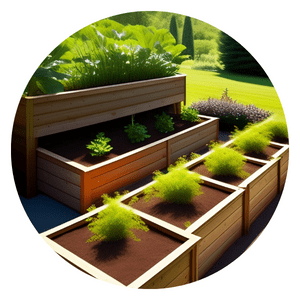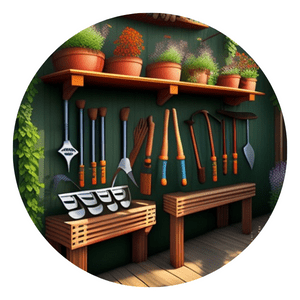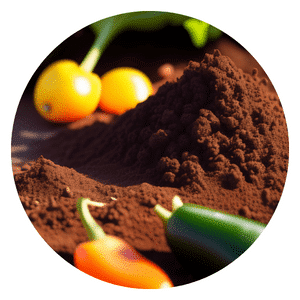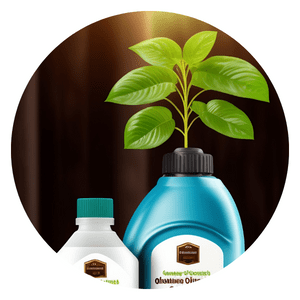Organic Fertilizer for Raised Beds
Organic gardening has gained significant popularity in recent years, as people are becoming more conscious of the impact their choices have on the environment.
One key aspect of organic gardening is the use of organic fertilizers, which offer numerous benefits over synthetic alternatives.
When it comes to raised beds, specifically designed garden beds that sit above ground level, using organic fertilizer becomes even more crucial for optimal plant growth.
In this article, we will explore the importance of organic fertilizer for raised beds and discover various options available to ensure a healthy and sustainable garden.

Organic Fertilizer For Raised Beds Menu
Why use organic fertilizer in raised beds?
Using organic fertilizer in raised beds offers numerous benefits for both the plants and the environment.
Firstly, organic fertilizers are derived from natural sources such as compost, animal manure, or plant-based materials. These substances provide essential nutrients to the soil without introducing harmful chemicals or synthetic additives.
By using organic fertilizers, gardeners can ensure that their plants receive a balanced diet of nutrients that promote healthy growth and development.
Additionally, organic fertilizers improve soil structure and fertility over time.
As these natural fertilizers break down, they release slow-release nutrients into the soil, which helps to nourish plants gradually and consistently. This gradual release also prevents nutrient runoff and leaching into nearby water bodies, reducing the risk of water pollution.
Furthermore, using organic fertilizer in raised beds promotes long-term sustainability by supporting beneficial microorganisms in the soil. These microorganisms play a crucial role in breaking down organic matter and converting it into forms that are readily available for plant uptake.
By maintaining a healthy microbial community within the soil through the use of organic fertilizers, gardeners can enhance overall soil health and create an optimal growing environment for their plants.
Incorporating organic fertilizer into raised beds is a wise choice for any gardener seeking to cultivate healthy plants while minimizing environmental impact.
Organic fertilizers provide essential nutrients without introducing harmful chemicals or synthetic additives into the ecosystem. They contribute to improving soil fertility over time while preventing nutrient runoff and promoting sustainable gardening practices by supporting beneficial microorganisms in the soil.
Compost
Using well-aged compost in raised bed soil is an excellent way to enhance fertility and provide essential nutrients for optimal plant growth.
Compost, being rich in organic matter, acts as a natural fertilizer that promotes healthy soil structure by improving its ability to retain moisture and nutrients.
Additionally, it helps in maintaining a desirable pH level, which is crucial for the availability of essential elements to plants.
When incorporating compost into the raised beds, it is important to ensure that it is well-aged. This means allowing the compost to decompose fully, ensuring that any potential pathogens or weed seeds are killed off during the process.
Well-aged compost also has a more balanced nutrient content compared to fresh compost, making it safer and more effective for plant growth.
By adding well-aged compost into the raised bed soil, gardeners can create an ideal environment for their plants. The organic matter provided by the compost encourages beneficial microbial activity in the soil, which aids in nutrient cycling and disease suppression.
Moreover, regular additions of well-aged compost help build up long-term soil fertility while reducing dependence on synthetic fertilizers, making it a sustainable practice for organic gardening enthusiasts.
Worm Castings
Worm castings, also known as vermicompost, are a highly beneficial organic fertilizer for raised beds.
Adding worm castings to the soil enriches it with essential nutrients and beneficial microorganisms that enhance soil health.
The nutrient content in worm castings is incredibly rich, making them an excellent choice for providing the necessary elements for plant growth.
In addition to their high nutrient content, worm castings also improve soil structure.
They help to create a loose and crumbly texture in the soil, which allows for better water drainage and root penetration. This improved soil structure promotes healthier root development and reduces the risk of root rot or other water-related issues.
Furthermore, the presence of beneficial microorganisms in worm castings helps to suppress harmful pathogens and pests in the soil. These microorganisms compete with or prey on harmful organisms, reducing their population and preventing diseases from spreading among plants.
As a result, using worm castings as an organic fertilizer not only provides essential nutrients but also supports a more balanced ecosystem in your raised beds.
In beds of life, where dreams bloom strong, Organic fertilizer shall belong, With gentle touch, it nourishes deep, From mother Earth, its secrets seep. With balance right, it feeds each root, From seeds to flowers, bearing fruit. In raised beds blessed with nature's care, Organic love, abundant harvests we share.
Chappy The Gardener
Manure
Using composted animal manure, such as cow or chicken manure, is an excellent way to enrich the soil in organic raised beds. This type of manure contains valuable nutrients that can help improve the fertility of the soil and promote healthy plant growth.
However, it is crucial to ensure that the manure is well-aged or composted before applying it to avoid burning plants with excessive nitrogen.
Composting animal manure allows for the decomposition of organic matter, breaking down any harmful pathogens and reducing its odor. This process also helps eliminate weed seeds and makes the nutrients more readily available for plants.
Well-composted manure should have a dark brown color and a pleasant earthy smell. It should be crumbly and easy to work with, without any signs of heat or ammonia odor.
By using composted animal manure in raised beds, gardeners can replenish essential nutrients in their soil naturally while improving its structure and water-holding capacity.
Additionally, this organic fertilizer provides a sustainable alternative to synthetic options while promoting overall soil health.
However, it’s important not to overdo it – using too much animal manure at once can lead to nutrient imbalances or even harm your plants due to high levels of nitrogen.
Bone Meal
Bone meal is an excellent choice of organic fertilizer for raised beds due to its slow-release properties.
When applied, it provides a consistent source of phosphorus to the plants over an extended period, promoting robust root development and vibrant flowering.
Phosphorus is a crucial nutrient for plants as it plays a vital role in energy transfer, cell division, and overall growth.
By incorporating bone meal into the soil of raised beds, gardeners can ensure that their plants receive a steady supply of this essential element.
In addition to promoting root development and flowering, bone meal also helps enhance the overall health of plants in raised beds.
It aids in strengthening stems and increasing plant resilience against diseases and pests.
The slow-release nature of bone meal allows it to break down gradually in the soil, ensuring that nutrients are readily available to plants when they need them most. This makes it particularly beneficial for long-term plant growth in raised beds where continuous nourishment is required.
Overall, incorporating bone meal into the soil of raised beds is an effective way to provide a sustainable source of phosphorus for optimal root development and abundant flowering.
Its slow-release nature ensures that plants receive a consistent supply of nutrients over time while also promoting overall plant health.
By choosing organic fertilizers like bone meal, gardeners can cultivate thriving gardens without relying on synthetic chemicals or harming the environment.
Fish Emulsion
Fish emulsion is a popular choice for organic gardeners looking to provide their plants with a quick nutrient boost. This liquid fertilizer, made from fish waste, is rich in nitrogen, phosphorus, and trace minerals.
These essential nutrients are necessary for healthy plant growth and development.
One of the major advantages of using fish emulsion as an organic fertilizer for raised beds is its fast-acting nature.
Since it is in liquid form, the nutrients can be readily absorbed by the plants’ roots and utilized immediately. This makes it an ideal choice when you need to provide your plants with a quick pick-me-up or correct any nutrient deficiencies.
In addition to providing essential nutrients, fish emulsion also helps improve soil health.
The organic matter in the fertilizer enhances soil structure and promotes beneficial microbial activity. This can lead to improved water retention and nutrient availability for your plants, creating a healthier growing environment overall.
Overall, incorporating fish emulsion into your gardening routine can be highly beneficial for your raised bed plants.
Its high nutrient content and fast-acting nature make it an effective solution for giving your plants the extra boost they need while also improving soil health in the long run.
Seaweed or Kelp Extract
Seaweed or kelp extract is a popular choice for organic gardeners when it comes to fertilizing raised beds.
By applying liquid seaweed or kelp extract as a foliar spray, you can provide your plants with a rich source of nutrients and growth-promoting compounds. These extracts are packed with beneficial elements such as nitrogen, phosphorus, potassium, and trace minerals like iron, magnesium, and calcium.
When used as a foliar spray, the nutrients in seaweed or kelp extract are easily absorbed by the leaves of your plants, allowing for quick nutrient uptake. This method is particularly useful during periods of stress or when plants are in need of an extra boost.
Alternatively, you can use these extracts as a soil drench by mixing them with water and pouring the solution directly onto the soil around your plants’ roots. The nutrients will then slowly release into the soil over time.
In addition to providing essential nutrients, seaweed or kelp extract also contains growth-promoting compounds like cytokinins and auxins. These compounds help stimulate root development and enhance overall plant growth. They can also improve plant resistance to diseases and pests while promoting flowering and fruit set.
Overall, incorporating liquid seaweed or kelp extract into your gardening routine is an excellent way to nourish your raised bed plants naturally while promoting their overall health and productivity.
How to apply organic fertilizer to raised beds
Applying organic fertilizer to raised beds is a straightforward process. Here’s how you can do it:
Determine the Fertilizer Type: Choose the appropriate organic fertilizer based on the nutrient needs of your plants. Consider options like compost, worm castings, well-aged manure, or specific organic fertilizers designed for vegetables or flowers.
Prepare the Bed: Before applying the fertilizer, ensure that the raised bed is well-prepared. Remove any weeds, loosen the soil, and water it thoroughly if it’s dry.
Read the Instructions: Read the instructions provided on the fertilizer package to determine the recommended application rates and frequencies. Follow the manufacturer’s guidelines to avoid over-fertilization.
Spread the Fertilizer: Sprinkle or spread the organic fertilizer evenly across the surface of the raised bed. Use a handheld spreader or simply scatter it by hand. If using compost or worm castings, apply a 1-2 inch layer and gently work it into the top few inches of the soil.
Water the Bed: After applying the organic fertilizer, water the raised bed thoroughly. This helps to activate the nutrients and ensure their absorption into the soil.
Maintain Regular Application: Depending on the specific fertilizer and the needs of your plants, you may need to reapply the organic fertilizer periodically. Follow the recommended frequency of application to provide a consistent supply of nutrients.
Consider Top Dressing: For continuous feeding, consider top dressing the soil with compost or worm castings throughout the growing season. This helps to replenish nutrients and improve soil health.
Remember to monitor your plants’ response to the organic fertilizer and make adjustments as needed.
Additionally, it’s a good practice to incorporate other organic gardening techniques like crop rotation, companion planting, and cover cropping to maintain the overall health and fertility of your raised beds.
In conclusion, using organic fertilizer in raised beds is a fantastic way to promote healthy plant growth and enhance the overall productivity of your garden.
The benefits of organic fertilizers, such as improved soil structure, increased nutrient availability, and reduced environmental impact, make them a superior choice over synthetic alternatives.
By opting for organic options, you not only support sustainable farming practices but also contribute to the health and well-being of your family by minimizing exposure to harmful chemicals.
So why wait? Start reaping the rewards of organic gardening today by incorporating organic fertilizer into your raised beds – your plants will thank you!
Click To Grow
Helps Us Grow – Share If You Like













